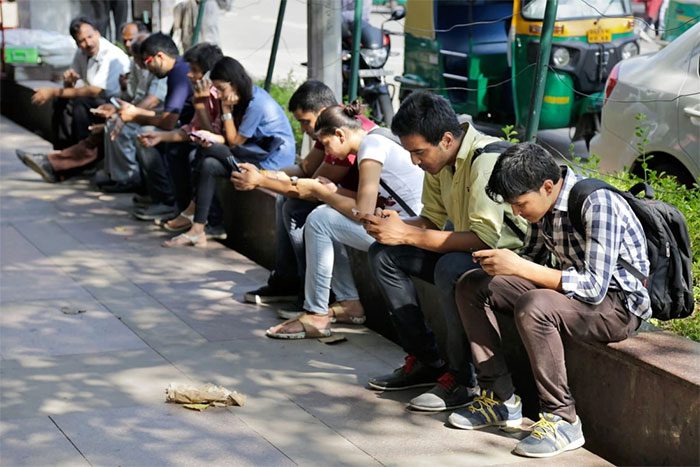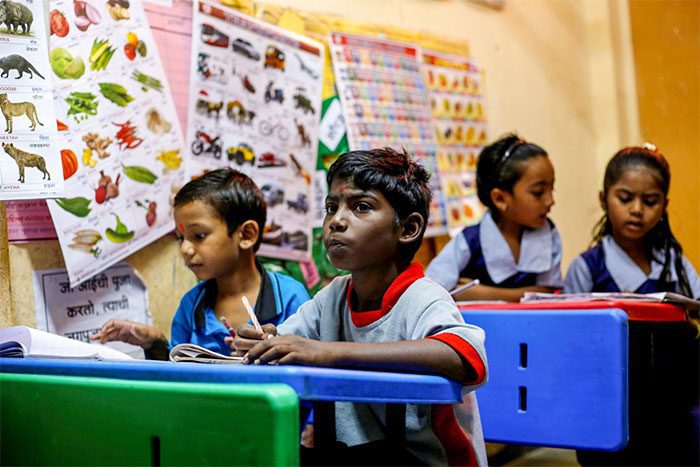According to village head Raju Magdum, turning off electronic devices for a certain period each day helps children focus on their studies and improves social skills among residents.
Recently, Mangaon, a village in Kolhapur district, India, has called on its 15,000 residents to turn off all electronic devices such as TVs and phones from 7 PM to 8:30 PM daily to combat “digital addiction.”
Village head Raju Magdum observed that everyone in the village, from adults to children, spends too much time “glued to screens” each day.

Spending too much time on phones has impacted residents’ lives.
He stated: “Families no longer communicate, children do not focus on their homework, and neighbors don’t even check on each other.”
“We are all addicted to mobile phones and TVs, leading to issues like lack of focus and poor communication among family members, which is escalating into a serious problem.”
According to him, implementing a curfew for phone usage will encourage people to engage more with their families and neighbors, allowing children to study without distractions. This regulation is set to begin on March 8.
Every day at 7 PM, a special alarm will sound, and all village members will have to turn off their TVs and phones until the alarm signals the end of the “detox” period at 8:30 PM.
Initially, this initiative to turn off TVs and mobile phones is voluntary, but if a family consistently ignores it, local authorities will penalize them by increasing property taxes.

Having everyone turn off electronic devices simultaneously will help children focus on their homework better.
It is noted that most homes in Mangaon are not large enough to have separate study rooms for children. With everyone in the same space, parents’ use of mobile phones and TVs significantly affects children’s ability to concentrate on their studies.
“Children are heavily impacted and perform poorly in school. During the pandemic when schools were closed, everyone became accustomed to spending more time than usual on their phones,” Magdum shared.
Interestingly, the idea of “digital detox” was also implemented in 2022 in Sangli district, adjacent to Mangaon. There, five villages mandated a one-hour ban on TV and phone usage daily due to concerns about a lack of social interaction and children losing focus while doing homework.
Jitender Dudi, a government official overseeing development in Sangli district, noted that the ban has shown positive results after a period of implementation.
“It has been about six months, and I see more conversations and laughter. Families are interacting more, and social communication has improved.”
“The whole atmosphere becomes lively at 7 PM, but somehow it does not distract children as much as phones and TVs do. People connect, and that is precisely the purpose of this initiative,” he added.
Anil Nikam’s family during “curfew hours” in a village in Maharashtra, India.
In 2021, the Jain community also launched a “digital detox” challenge aimed at reducing screen time among young people. Over 2,000 individuals agreed to stay away from screens for 12 hours a day for 50 days to “cleanse their minds.”
Currently, many other villages in India are discussing and considering the campaign and may soon call on residents to turn off electronic devices starting in the coming days.





















































